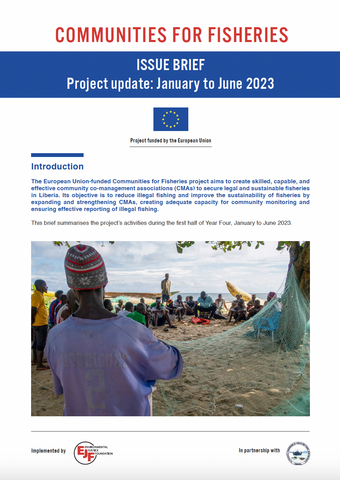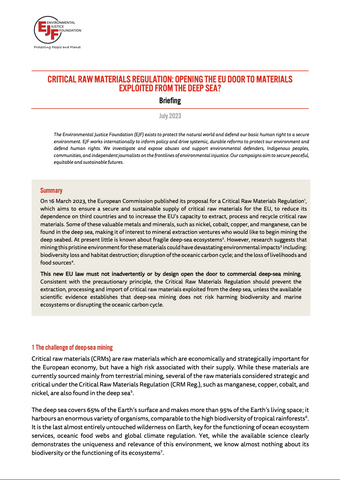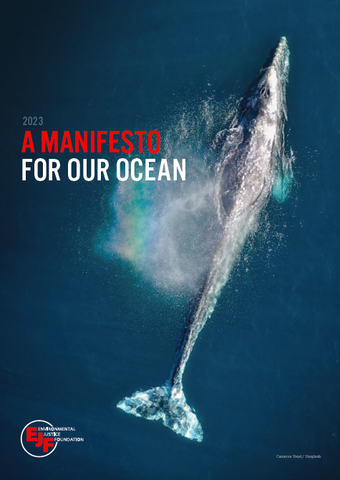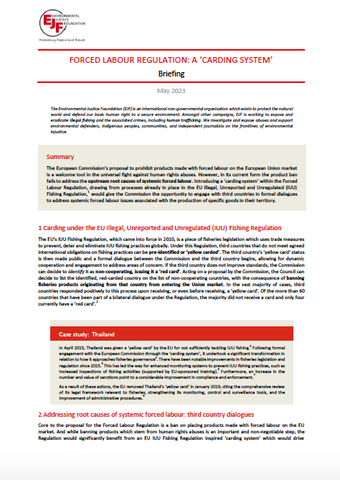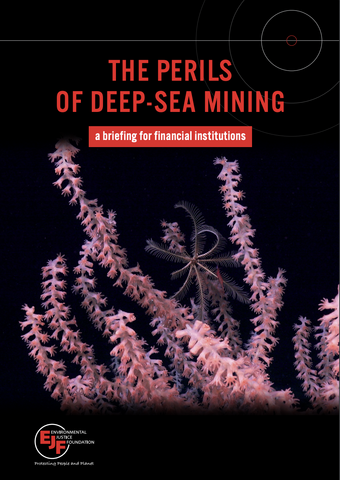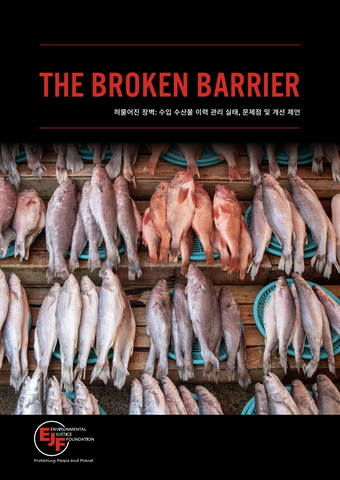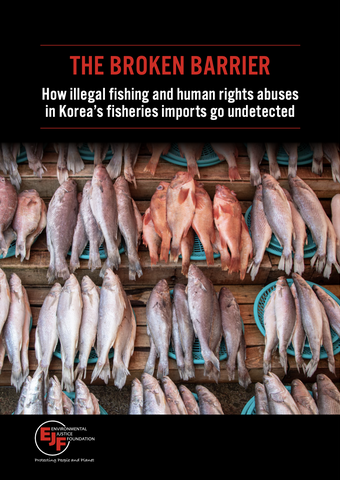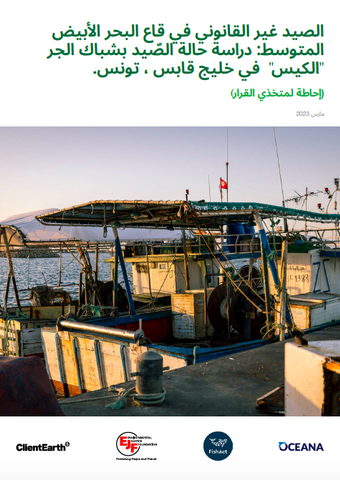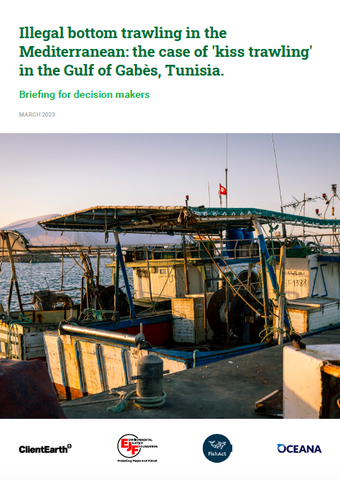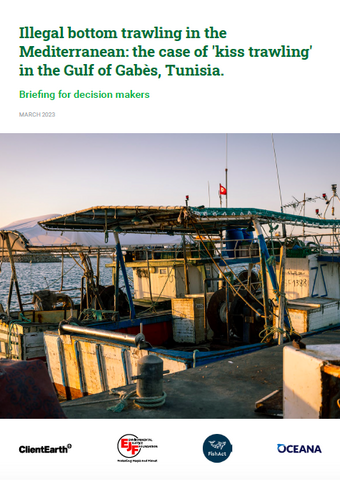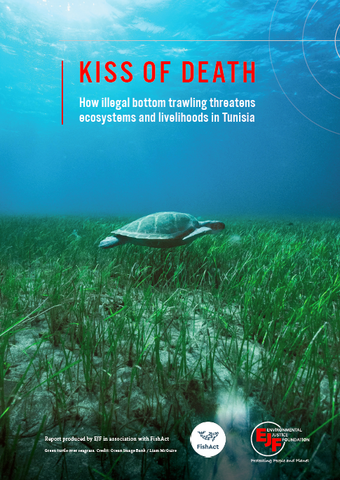Communities for Fisheries project update - January-June 2023: The EU-funded Communities for Fisheries project aims to create skilled, capable and effective community co-management associations (CMAs) to secure legal and sustainable fisheries in Liberia. This brief summarises the progress made under the project from January to June of 2023.
Critical Raw Materials Regulation: Opening the EU door to materials exploited from the deep sea?: The Critical Raw Materials Regulation must not inadvertently or by design open the door to commercial deep-sea mining. Consistent with the precautionary principle, this new EU law should prevent the extraction, processing and import of critical raw materials exploited from the deep sea, unless the available scientific evidence establishes that deep-sea mining does not risk harming biodiversity and marine ecosystems or disrupting the oceanic carbon cycle.
A manifesto for our ocean: Our ocean is the blue beating heart of our planet, but we are putting this irreplaceable ecosystem under extreme pressure. In this manifesto, we lay out a roadmap for the protection of the ocean, providing clear policy recommendations to save our seas and safeguard our future.
Coal-powered crisis: The cost of Germany’s energy U-turn: This briefing analyses Germany's recent increased reliance on coal, and what consequences this has for meeting the country's legally binding climate commitments. It focuses on the coal phase-out and the energy transition in Germany, making recommendations for the German Federal Government to phase out coal-fired power generation by 2030.
Forced Labour Regulation: a 'carding' system: This briefing highlights the benefits of introducing a 'carding system' to the proposed Forced Labour Regulation to prohibit products made with forced labour on the EU market, inspired by the successes of the EU's Illegal, Unregulated and Unreported (IUU) Fishing Regulation.
The Broken Barrier: How illegal fishing and human rights abuses in Korea’s fisheries imports go undetected: A rise in seafood imports and a lack of supply chain safeguards is allowing the products of illegal fishing to enter the Korean market. The Korean government must improve transparency and traceability measures to ensure consumers are not driving environmentally destructive fishing and human rights abuses at sea.
الصيد غير القانوني في قاع البحر الأبيض المتوسط: دراسة حالة الصّيد بشباك الجر "الكيس" في خليج قابس ، تونس: الالتزام بالقضاء على الصيد المحظور بالكيس وعمل خطة للقيام بذلك، بالتنسيق مع ولاية صفاقس والمعنيين بالمجتمع المدني والبحارة وتجار الأسماك، وتحديد موعد واضح لإنهاء تنفيذ تلك الخطة بنهاية العام 2024 نظرا لخطورة الموضوع.
Illegal bottom trawling in the Mediterranean: the case of 'kiss trawling' in the Gulf of Gabès, Tunisia: This policy brief summarises the impacts of a form of illegal bottom trawling, known locally as kiss trawling, in Tunisia, and makes recommendations on how to bring it to an end safely, fairly and sustainably.
Kiss of death: How illegal bottom trawling threatens ecosystems and livelihoods in Tunisia: The Gulf of Gabès in Tunisia is exceptionally important, but its local traditions, economies and rich marine habitats are disappearing. A form of illegal bottom trawling known as kiss trawling is responsible - immediate action is needed to end it.
